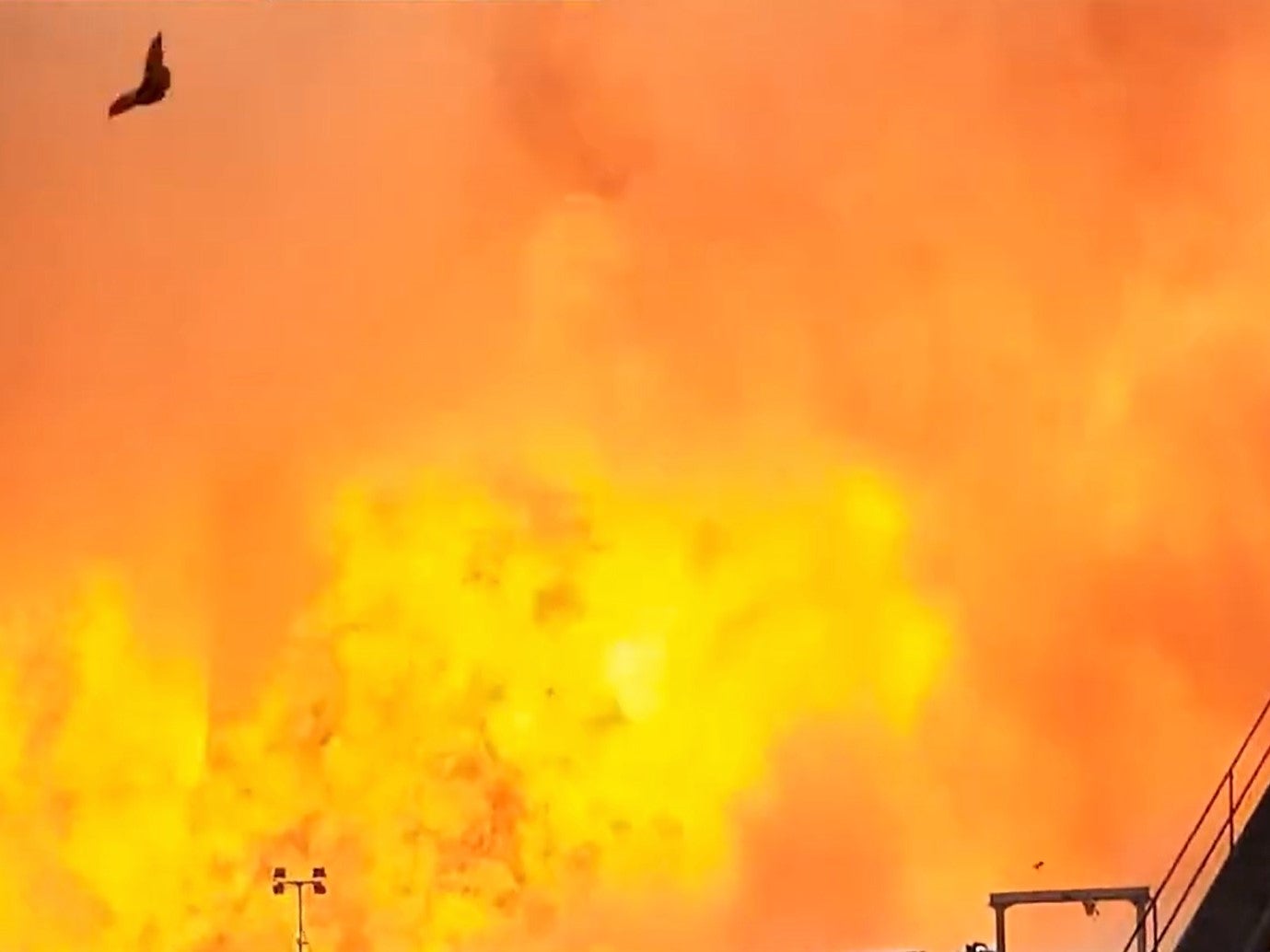Elon Musk’s SpaceX Starship rocket explodes and catches fire
SpaceX boss describes incident as ‘actually not good’

A SpaceX rocket has exploded at the testing site of the company’s Mars-bound Starship craft, Elon Musk has confirmed.
The SpaceX boss said the fireball at the firm’s Starbase facility in Boca Chica, Texas, on Monday evening occurred during a spin start test of all 33 Raptor engines onboard.
The explosion of the Super Heavy Booster 7, known as B7, was caught by cameras set up by NasaSpaceFlight, which were recording a live stream of the testing.
The B7 rocket is being developed for the first orbital flight of the Starship rocket. Set to take place later this year, the uncrewed journey will see the Starship second stage stacked on top of the booster to deliver it into orbit. After 90 minutes of flight, it will then aim to touch down just off the coast of Hawaii.
It is not the first time a Starship rocket has exploded during testing, however it is the first occurrence of the Super Heavy Booster suffering such a malfunction.
Mr Musk responded on Twitter to a clip of the explosion, describing it as “actually not good”.
He added further details about how it happened, explaining that a leak of cryogenic fuel evaporated to create a fuel-air explosion.
In order to prevent similar incidents in the future, the SpaceX boss said areas prone to leaking will be fitted with small sparks to burn off the excess fuel gradually as it escapes.
“This particula issue, however, was specific to the engine spin start test (Raptor has a complex start sequence),” he said. “Going forward, we won’t do a spin start test with all 33 engines at once.”
He also revealed that he personally inspected the explosion site on Monday evening, though it was too dark to fully assess the damage.
“Base of the vehicle seems OK by flashlight,” he said. “I was just out there about an hour ago. We shut down the pad for the night for safety. Will know more in the morning.”
Join our commenting forum
Join thought-provoking conversations, follow other Independent readers and see their replies
6Comments